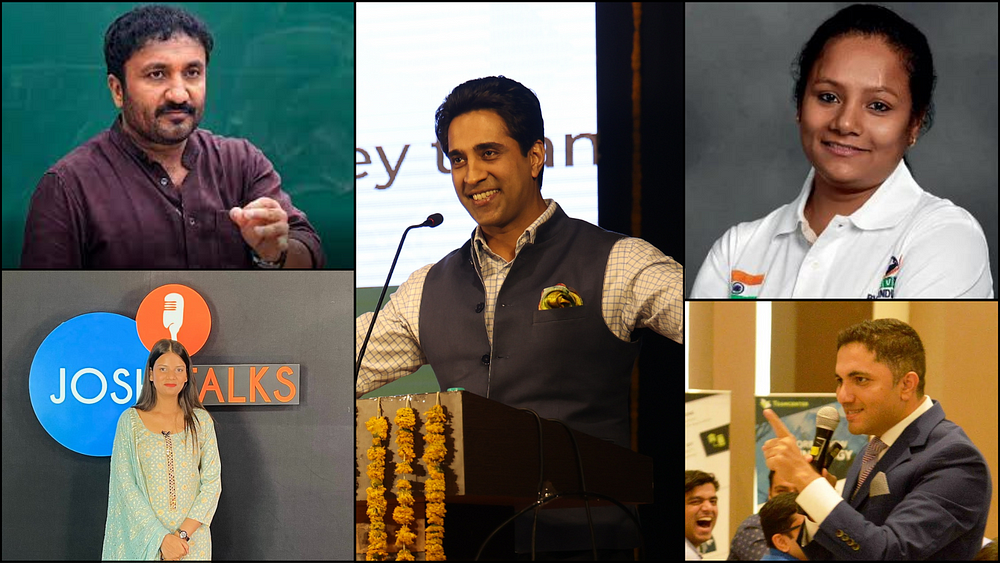Motivational Speaker Qualifications

Imagine a packed auditorium, the air buzzing with anticipation. A single spotlight illuminates the stage where a figure stands, ready to ignite a spark within each audience member. But what invisible threads of experience, education, and empathy weave together to create a truly impactful motivational speaker?
This article delves into the multifaceted world of motivational speaking, exploring the qualifications, both tangible and intangible, that separate a good speaker from one who can genuinely inspire lasting change. Forget rigid certifications; the path to becoming a successful motivational speaker is paved with diverse experiences and a profound understanding of the human spirit.
Unlike professions with clear-cut licensing requirements, motivational speaking operates on a more fluid spectrum. There's no governing body handing out official "Motivational Speaker" diplomas. Instead, credibility is earned through a combination of lived experience, storytelling prowess, and the ability to connect with an audience on an emotional level.
The Foundation: Personal Narrative and Experience
Many successful motivational speakers draw heavily from their own life stories. Their challenges, triumphs, and hard-earned lessons become the bedrock of their message. Consider Brene Brown, whose research on vulnerability and shame is deeply rooted in her personal journey.
Her ability to articulate complex emotions with authenticity resonates powerfully with audiences worldwide. Similarly, individuals who have overcome significant adversity, such as athletes recovering from career-threatening injuries or entrepreneurs who have bounced back from business failures, often find their experiences translate into compelling motivational narratives.
However, it's not just about what you've been through; it's about how you frame it. A compelling narrative requires introspection, the ability to extract universal themes from personal experiences, and the skill to communicate those themes in a way that is both relatable and inspiring.
Honing the Craft: Communication and Presentation Skills
Beyond personal experience, strong communication skills are paramount. A motivational speaker must be able to articulate their message clearly, concisely, and engagingly. This involves mastering the art of storytelling, using persuasive language, and employing nonverbal cues effectively.
Many speakers hone their skills through formal training in public speaking, such as courses offered by organizations like Toastmasters International. These programs provide valuable feedback and opportunities to practice in a supportive environment. Furthermore, understanding basic principles of psychology and human behavior can significantly enhance a speaker's ability to connect with their audience and tailor their message accordingly.
The ability to adapt to different audiences is also crucial. A speaker who can connect with a corporate audience might need to adjust their style and content to resonate with a group of students or community members.
Building Credibility: Education, Research, and Expertise
While formal education isn't always a prerequisite, it can certainly enhance a speaker's credibility. A background in psychology, sociology, education, or business can provide a solid theoretical foundation for their work. Some speakers also pursue certifications in coaching or leadership development to further validate their expertise.
Staying abreast of current research and trends in their area of focus is also essential. Motivational speakers who cite credible sources and back up their claims with evidence are more likely to be perceived as trustworthy and knowledgeable. This demonstrates a commitment to continuous learning and a desire to provide audiences with valuable, evidence-based insights.
"The best speakers are lifelong learners," says John Maxwell, a renowned leadership expert and author.
Ultimately, a motivational speaker's credibility is built on a combination of experience, expertise, and ethical conduct. They must be authentic, transparent, and committed to serving the best interests of their audience.
The Intangible Qualities: Empathy, Passion, and Authenticity
Perhaps the most crucial qualifications are the intangible ones: empathy, passion, and authenticity. A truly effective motivational speaker possesses a genuine desire to help others and a deep understanding of the human condition. They can connect with their audience on an emotional level, inspiring them to overcome challenges and achieve their goals.
Passion is contagious. When a speaker is genuinely passionate about their message, it resonates with the audience and creates a powerful connection. Authenticity is equally important. Audiences can quickly detect insincerity, so it's crucial for speakers to be true to themselves and their values.
Motivational speaking is more than just delivering a speech; it's about creating a transformative experience. It's about igniting a spark within each audience member and empowering them to live their best lives.
The path to becoming a motivational speaker is a journey of self-discovery, continuous learning, and a profound commitment to serving others. It's a path paved with experience, honed by skill, and fueled by a genuine desire to make a positive impact on the world. And while there are no guaranteed shortcuts, the rewards of inspiring and empowering others are immeasurable.









![Motivational Speaker Qualifications Motivational Speaker Job Description [Updated for 2025]](https://interviewguy.com/wp-content/uploads/2024/02/motivational-speaker-job-description.webp)








